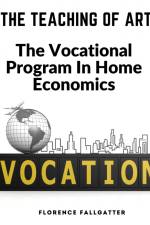av Elizabeth Palmer Peabody
239,-
This study has more and more confirmed the conviction I derived from reading Froebel's "Essay on the Education of the Human Race;" viz., that no greater benefit could be conferred on our country, than the far and wide spread of Kindergartens, as an underpinning, so to say, of our noble public?school system, giving adequate moral foundation, thoroughness, and practicality to the national education. But I also learned that no book could be written that would make an expert Kindergartner. It was the careful observations and earnest experiments of half a century, that gave to Froebel himself that profound knowledge of childhood which enabled him to formulate the principles, deduce the rules, and call forth the spirit of a genuine art of education. But though no genius and industry less than his own could have originated this art, any soundly cultured, intelligent, genial-tempered young woman, who loves children, can appreciate and practise it, if-and only if-she is trained by a living teacher engaged in the work at the moment. This, I myself have proved experimentally also; for my knowledge was first obtained only from books. I had the best manuals and guides, but did not know that they were intended merely for the convenience of already trained teachers; and that they necessarily omitted the characteristic peculiarity of the method, because written words cannot do justice to the fine steps by which the child is led to gradually carry its total spontaneity forwards, on every plane of its little life,-artistic, moral, and intellectual. For there is nothing merely mechanical and imitative in true Kindergarten culture: the child acts "from within outwards" in every thing it does, however seemingly trifling; and, if we use the word artist in its most general sense, becomes an artist from the beginning.




